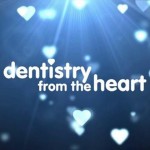Year-End Insurance Reminder
October 4th, 2016

Drs. Angela Paros, Amer Atassi, Eric Young, Alexander Katsnelson, as well as our team at High Point Dental Group, would like to give those patients with flex spend, health savings, or insurance benefits a friendly end of the year reminder that it’s high time to schedule your dental visits so you optimize your benefit.
Now is the time to reserve your appointment with us. Space is limited and we tend to get busy around the holidays, so don’t wait to give us a call at our convenient Romeoville, IL office!
Dentistry From the Heart
September 27th, 2016
High Point Dental is so excited to be a part of Dentistry From The Heart (DFTH)! DFTH is a non-profit dental organization working to supply the world with free dental services. HighPoint Dental has teamed up with DFTH to offer dental care to those in need.
As an effort to give back to the community we love so much, on Friday, October 14, we are donating free dental care for adults (18+) in need. They can choose a filling, extraction or cleaning!
We will see patients on a first-come, first-serve basis. Registration begins at 7:30am so make sure to come early to guarantee a spot! Patients will be seen from 8:00am until registration closes at 4:00pm.
If you have any more questions, please call HighPoint Dental directly at 815-293-1500.
I’m on a diet and getting MORE cavities!
September 27th, 2016

Health gurus rave about replacing unhealthy food choices with healthy ones in your diet. If you want to maintain your beautiful smile as well as your waistline, choose foods that are good for your teeth and good for losing weight. This article will discuss some of the worst healthy foods for your teeth and gums, and what you can do to continue to enjoy them.
When watching your weight, snacks heavy in sugar and starch are the first target for elimination. You want to trade those empty calories for something with more nutritional value. A healthier snack is fruit and vegetables. When you are substituting empty calories with whole foods such as fruits and vegetables, consider a few implications for your dental health.
The most acidic fruits are grapes, grapefruit, and strawberries. Want to know the number-one worst healthy food for your tooth enamel? Apples! An apple a day may keep the doctor away but you may soon be calling your dentist.
Another healthy food often incorporated into dieting is salads. But consider what you put in those salads. Salad dressings are filled with vinegar and sweeteners. These make a salad very acidic and can change the pH of your mouth from alkaline, which is good for your teeth and gums, to acidic, which puts your smile at risk for erosion and decay.
Last but not least is diet soda. You might be cutting down on the calories but you are still putting your teeth at risk for decay. Though calories are reduced, the acid is not.
You do not need to eliminate any of these foods from your diet. Simply alter what you do after eating these foods to decrease the amount of acid your teeth are exposed to.
During your next visit to High Point Dental Group in our Romeoville, IL office, we can discuss your diet. We may recommend using certain products to fortify your teeth or change the way you routinely care for your teeth.
Please enjoy the wonderful whole foods that are great for a healthy waistline. A healthy waistline and a healthy smile have a positive influence on your general health. A healthier you is a happier you. The happier you are, the more you smile. Keep your smile brilliant and beautiful with the care your teeth deserve at the practice of Drs. Angela Paros, Amer Atassi, Eric Young, Alexander Katsnelson.
Love your new smile? Tell us about it!
September 20th, 2016

At High Point Dental Group, we have been creating beautiful smiles for years. Whether you have visited Drs. Angela Paros, Amer Atassi, Eric Young, Alexander Katsnelson and our team for a week or for your entire life, we would love to hear your thoughts about your experience! In fact, we encourage you to leave a few words for us below or on our Facebook page!
We look forward to reading your feedback!







